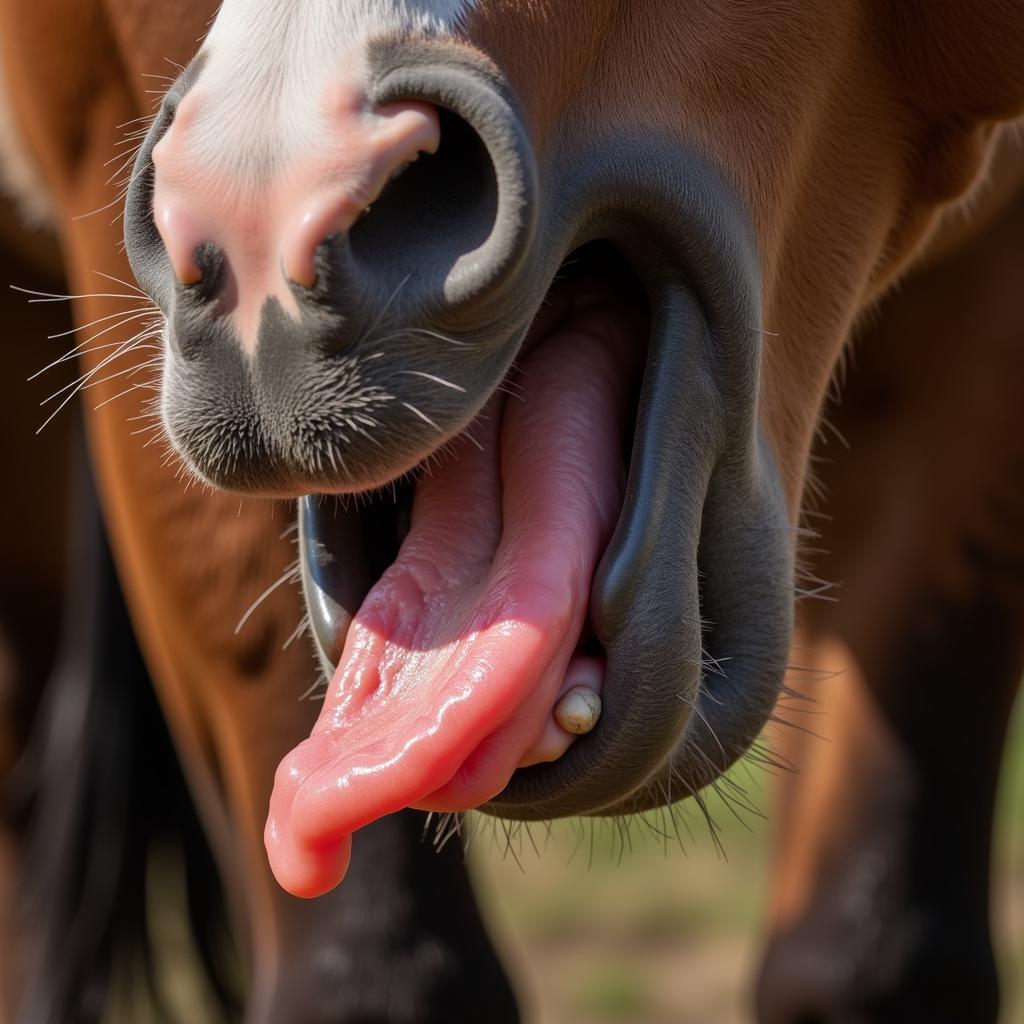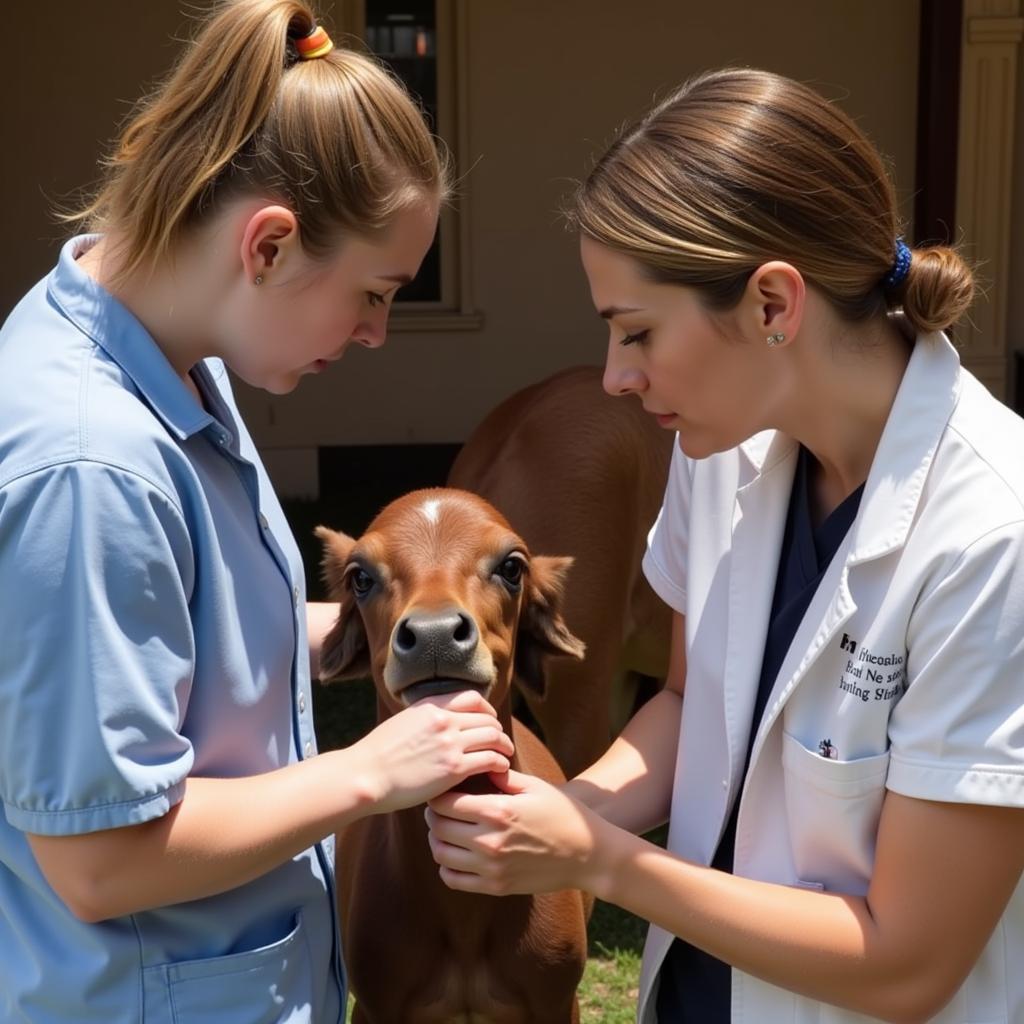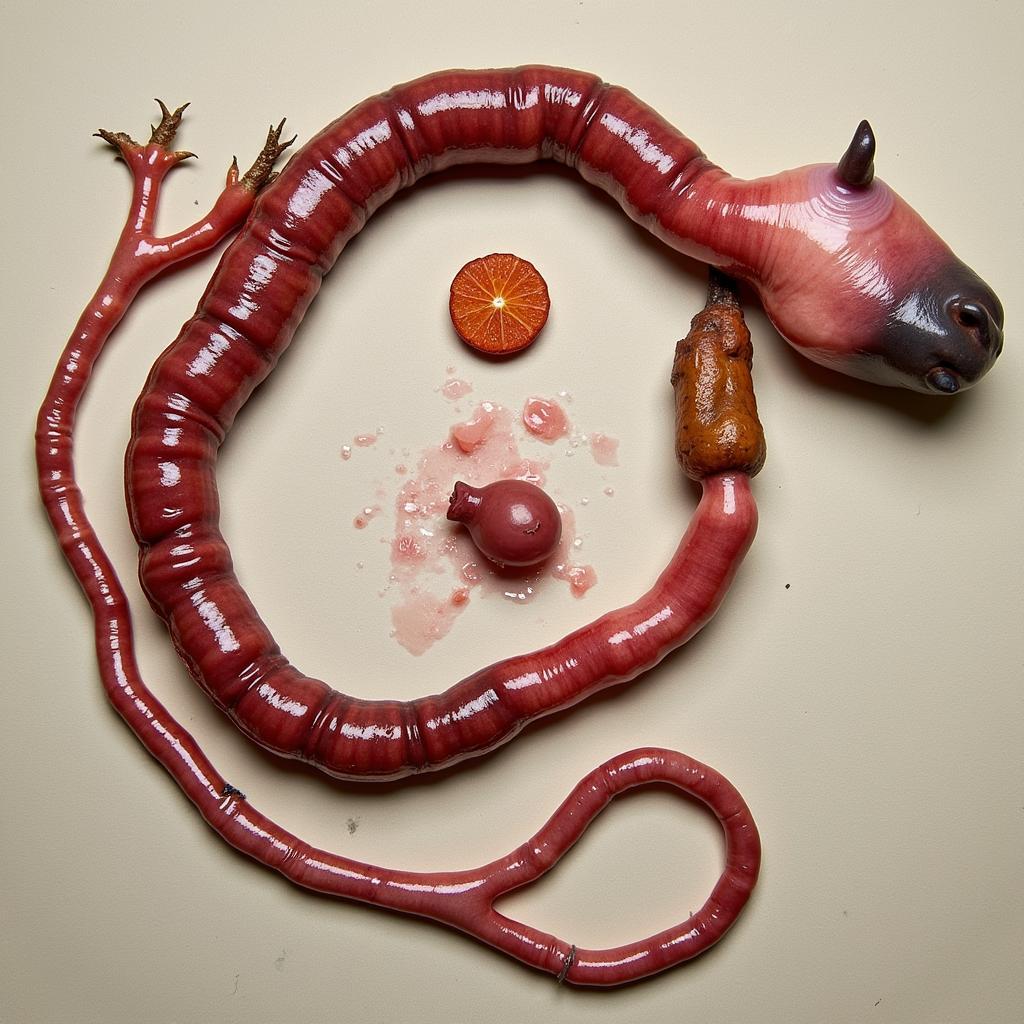Do Horses Eat Their Afterbirth? This seemingly strange behavior is actually quite common and rooted in instinct. Understanding why mares do this can help horse owners provide the best possible care during and after foaling. This article will explore the reasons behind this behavior, potential risks, and what you should do as a responsible horse owner.
Why Do Mares Consume the Placenta?
The consumption of the placenta, also known as placentophagy, is observed across many mammal species, including horses. While the exact reasons remain a subject of ongoing research, several theories offer compelling explanations. One prominent theory suggests that consuming the placenta helps to mask the scent of birth from predators, protecting the vulnerable foal. This instinct would have been crucial for survival in the wild. Another theory posits that placentophagy replenishes vital nutrients lost during pregnancy and delivery. The placenta is rich in iron, protein, and other essential elements. Finally, it’s thought that hormones present in the placenta may help stimulate milk production and uterine contractions, aiding in the expulsion of any remaining fetal membranes.
The Role of Instinct and Evolution
The act of eating the afterbirth is deeply ingrained in a mare’s instinct. In the wild, a mare giving birth would be in a vulnerable position. By quickly consuming the placenta, she reduces the chances of attracting predators who might be drawn to the scent of blood and birth fluids. This instinctive behavior has likely been passed down through generations, contributing to the survival of the species.
 Mare Eating Placenta After Foaling
Mare Eating Placenta After Foaling
Nutritional Benefits and Hormonal Influence
Beyond predator avoidance, the placenta offers a readily available source of nutrients. Pregnancy and delivery deplete a mare’s reserves, and the placenta provides a quick and easy way to replenish these vital resources. The nutrients, including iron and protein, help the mare recover from the physical demands of birth and support lactation. Furthermore, hormones within the placenta are believed to play a role in stimulating milk production, ensuring the foal receives the necessary nourishment for early growth and development. These hormones can also help the uterus contract back to its normal size, minimizing the risk of infection.
Potential Risks of Placentophagy
While placentophagy is generally considered normal behavior, there are potential risks associated with it. Consuming a large amount of placental tissue can sometimes lead to digestive upset, including colic or diarrhea. In rare cases, it can also introduce harmful bacteria, if the placenta is infected.
Recognizing and Addressing Potential Complications
It’s crucial for owners to monitor their mares closely after foaling. Signs of potential complications include prolonged diarrhea, colic symptoms (such as abdominal pain and restlessness), fever, or a foul-smelling discharge from the vulva. If you observe any of these symptoms, contact your veterinarian immediately. Early intervention is key to preventing serious health issues.
 Veterinarian Examining Mare Post-Foaling
Veterinarian Examining Mare Post-Foaling
What Should You Do as a Horse Owner?
Most mares will naturally consume their afterbirth without any intervention. However, it’s important to monitor the process and ensure that the entire placenta is passed within a few hours of birth. A retained placenta can lead to serious infections.
Monitoring the Mare and the Placenta
After the foal is born, carefully observe the mare and the expelled placenta. Make sure the placenta appears complete and isn’t excessively large or abnormally shaped. If you notice any abnormalities or if the mare doesn’t pass the entire placenta within three hours, contact your veterinarian immediately.
 Healthy Expelled Horse Placenta
Healthy Expelled Horse Placenta
When to Contact Your Veterinarian
While placentophagy is generally natural, several situations warrant veterinary attention. These include a retained placenta, signs of colic or diarrhea in the mare, a foul-smelling discharge, or any other signs of illness. Your veterinarian can diagnose and treat any potential complications, ensuring the health and well-being of both the mare and foal.
Conclusion
Do horses eat their afterbirth? Yes, it’s a natural and instinctive behavior with evolutionary roots. While generally beneficial, potential risks exist. By understanding why mares eat their placenta and knowing what to watch for, horse owners can ensure a safe and healthy foaling experience for their animals. Proper monitoring and prompt veterinary care when needed are crucial for the well-being of both mare and foal.
FAQs
- Is it normal for a mare to eat her placenta? Yes, it’s a natural and common behavior.
- What are the benefits of placentophagy? It may help mask the scent of birth, replenish nutrients, and stimulate milk production.
- What are the risks of placentophagy? In rare cases, it can cause digestive upset or introduce bacteria if the placenta is infected.
- How long does it take for a mare to pass the placenta? Usually within three hours of birth.
- What should I do if my mare doesn’t eat her placenta? Monitor her closely and contact your vet if she doesn’t pass it within three hours.
- When should I call the vet? If the mare shows signs of colic, diarrhea, fever, a retained placenta, or any other illness.
- Can I remove the placenta myself? No, it’s best to let the mare consume it naturally or contact your vet if there are concerns.
Need more assistance? Contact us at Phone Number: 0772127271, Email: [email protected] Or visit us at: QGM2+WX2, Vị Trung, Vị Thuỷ, Hậu Giang, Việt Nam. We have a 24/7 customer service team.